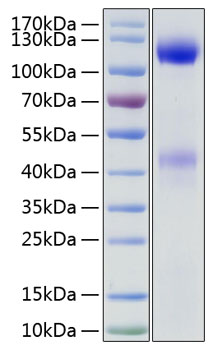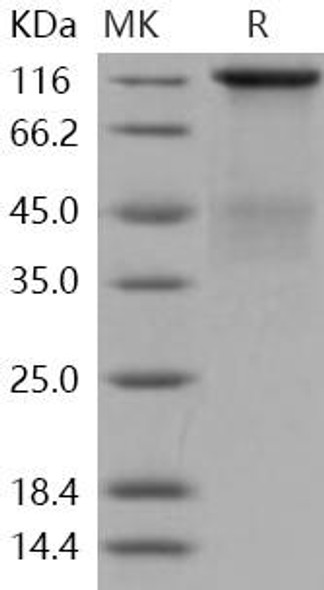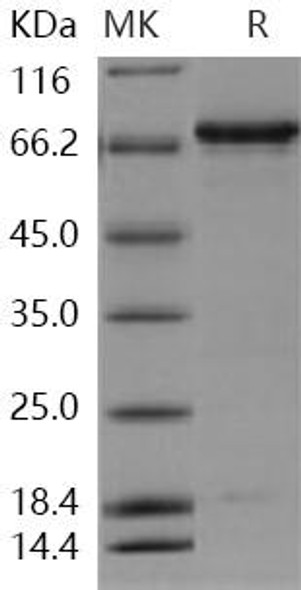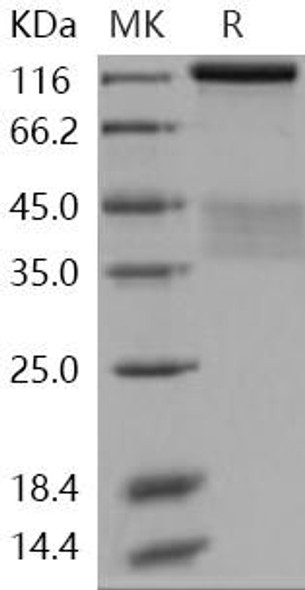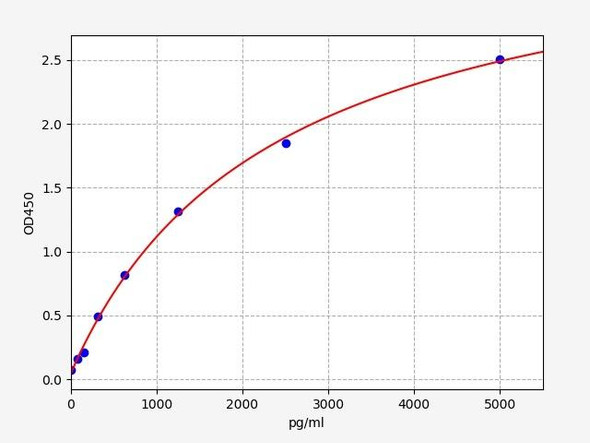Description
Recombinant Human Insulin Receptor/INSR/CD220 Protein
The Recombinant Human Insulin Receptor/INSR/CD220 Protein is a biologically active recombinant protein that plays a significant role in various cellular processes and signaling pathways in human biology. This protein is widely employed in immunological research, cell biology studies, protein-protein interaction analyses, and therapeutic development, providing researchers with a reliable tool for investigating Insulin Receptor/INSR/CD220 function and its implications in health and disease.
This product (SKU: RPCB1498) is produced using HEK293 cells and features a C-His tag for convenient detection and purification. The protein exhibits a calculated molecular weight of 83 kDa(α chain), 24 kDa(ECD of β subunit) with an observed molecular weight of 10-125 kDa(α chain) & 40-45(ECD of β subunit) under denaturing conditions, achieving ≥ 95 % as determined by SDS-PAGE., ensuring exceptional quality and consistency for research applications.
Key Features
| High Purity by Affinity Chromatography | |
| Mammalian & Bacterial Expression Systems | |
| High lot-to-lot consistency via strict QC |
| Product Name: | Recombinant Human Insulin Receptor/INSR/CD220 Protein |
| SKU: | RPCB1498 |
| Size: | 50 μg |
| Reactivity: | Human |
| Synonyms: | CD220, HHF5, INSR, CD220, HHF5, insulin receptor |
| Tag: | C-His |
| Expression Host: | HEK293 cells |
| Calculated MW: | 83 kDa(α chain), 24 kDa(ECD of β subunit) |
| Observed MW: | 10-125 kDa(α chain) & 40-45(ECD of β subunit) |
| Gene ID: | 3643 |
| Protein Description: | High quality, high purity and low endotoxin recombinant Recombinant Human Insulin Receptor/INSR/CD220 Protein (RPCB1498), tested reactivity in HEK293 cells and has been validated in SDS-PAGE.100% guaranteed. |
| Endotoxin: | < 1 EU/μg of the protein by LAL method. |
| Purity: | ≥ 95 % as determined by SDS-PAGE. |
| Formulation: | Lyophilized from a 0.22 μm filtered solution PBS, pH 7.4.Contact us for customized product form or formulation. |
| Reconstitution: | Centrifuge the vial before opening. Reconstitute to a concentration of 0.1-0.5 mg/mL in sterile distilled water. Avoid vortex or vigorously pipetting the protein. For long term storage, it is recommended to add a carrier protein or stablizer (e.g. 0.1% BSA, 5% HSA, 10% FBS or 5% Trehalose), and aliquot the reconstituted protein solution to minimize free-thaw cycles. |
| Storage: | Store at -20℃.Store the lyophilized protein at -20℃ to -80 ℃ up to 1 year from the date of receipt. After reconstitution, the protein solution is stable at -20℃ for 3 months, at 2-8℃ for up to 1 week. |
This protein is a member of the receptor tyrosine kinase family of proteins. The encoded preproprotein is proteolytically processed to generate alpha and beta subunits that form a heterotetrameric receptor. Binding of insulin or other ligands to this receptor activates the insulin signaling pathway, which regulates glucose uptake and release, as well as the synthesis and storage of carbohydrates, lipids and protein. Mutations in this gene underlie the inherited severe insulin resistance syndromes including type A insulin resistance syndrome, Donohue syndrome and Rabson-Mendenhall syndrome. Alternative splicing results in multiple transcript variants.


